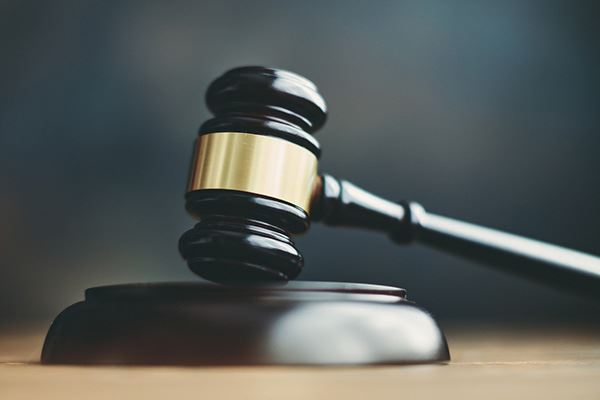
-
Your Rights MatterAttorney Hallack understands that clients need a combination of aggressive yet compassionate counsel at this time.
-
Genuine. Diligent. Ethical.Don't choose a Chicago defense lawyer who is in it for the money. I genuinely want to help you straighten out your life!
-
Free Case ConsultationWhen the stakes are high, you will need a defense strategy that can aggressively and effectively combat any allegations!
Chicago Bank Fraud Defense Lawyer
Businessman Facing COVID-Related Bank Fraud Charges in Chicago
It is not uncommon during large scale disasters for fraud charges against government programs and insurance companies to increase. The sheer number of applicants for relief money from programs like FEMA after a hurricane, or the CARES Act programs during COVID-19, make it possible for fraudulent behavior to become obscured and undiscovered.
The Paycheck Protection Program (PPP) was established through the federal CARES Act that was passed in March and provides forgivable loans to certain business applicants if they promise to use the money on payroll, rent and similar expenses.
However, COVID-19-related fraud charges have been filed over the summer, including against a Chicago-area business owner accused of filing a fraudulent bank loan application for over $400,000 in loans from the PPP established by the CARES Act. He allegedly submitted documents stating his payroll expenses were much higher than they actually were in efforts to obtain a higher PPP loan than was legal. As a result, the business owner faced charges of bank fraud and making false statements to a financial institution.
Contact a seasoned Chicago bank fraud defense attorney to defend your case. Call (888) 412-3741 to get started!
Bank Fraud vs. Making False Claims to a Financial Institution
Bank fraud is defined as knowingly executing or attempting to execute a scheme to obtain assets from a financial institution through dishonest means. Making false statements to a financial institution is considered a crime under a different statute and applies to individuals seeking certain types of loans or credit from one of several named institutions, specifically the Small Business Administration.
Bank fraud is the more general charge but individuals, as is the case here, can be charged with both offenses for certain types of fraudulent activity. These crimes each carry sentences up to 30 years in prison and fines of up to $1,000,000.
The federal government takes a strong stance against bank fraud and making false statements because often, as is the case with the CARES Act, Congress allocates a finite amount of relief money. This means money going to an individual who does not need it could mean money does not reach individuals who do need it.
Other COVID-Related Fraud Charges
Because of the increase in unemployment due to the COVID-induced economic downturn, fraudulent unemployment claims have increased significantly. Some fraudsters submit false paperwork to obtain benefits, while others collect benefits by gaining employment after becoming ineligible. Failing to report wages to obtain unemployment benefits can lead to other charges such as tax fraud if the defendant fails to pay income taxes as a result.
Additionally, some individuals filing for unemployment fraudulently do so by stealing identities, meaning charges of identity theft will be levied if the individual is caught. A Chicago bank fraud defense lawyer can work to reduce or dismiss your additional charges such as identity theft.
Contact a Chicago Fraud Crimes Defense Lawyer
Whether you are facing bank fraud charges or charges related to health care, unemployment or any other federal criminal charge, a lawyer with experience in federal criminal fraud cases is critical to your defense. A Chicago bank fraud defense lawyer like me can examine the details of your case, beginning from the investigation against you, and exhaust effective legal resources and strategies to build a strong defense on your behalf.
If you are facing fraud charges or under investigation in Chicago, contact attorney Thomas Hallock at 888-412-3741 to discuss your case for free.


Helpful Tips From Me To You
How To Properly Exercise Your Constitutional Rights
-
What You Should Do
- Be respectful.
- Calmly record the interaction.
- Ask if you are free to leave. If you do not ask, the officer may think - and the judge may agree - that the interaction is consensual.
- If you are free to leave, go! If you are not free to leave, do not answer any questions before speaking with your attorney.
-
What You Should Not Do
- Do not physically resist arrest.
- Do not become aggressive or confrontational.
- Do not consent to a search. The Constitution does not apply if you consent.
- Do not answer questions without first speaking with your attorney. Police are allowed to hold you for 48 hours and they may lie to you the entire time.



